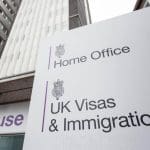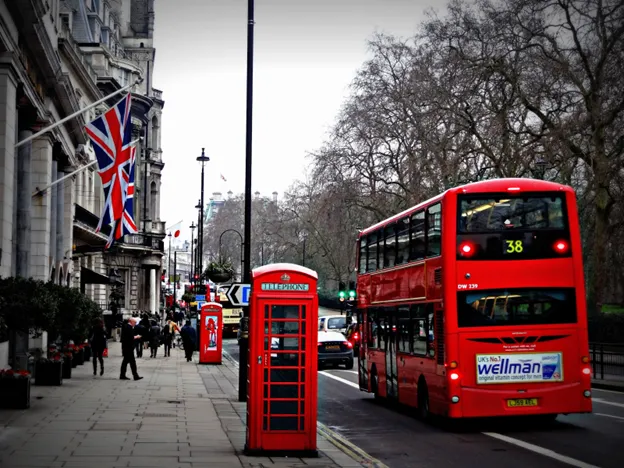Migrants Without ILR Still Barred from Public Funds
Migrants’ rights organisations have urged the Home Office to scrap the ‘No Recourse to Public Funds’ (NRPF) visa condition due to its harmful impact on overseas nationals. Sonia Rawal, a single mother-of-two, has spoken of the nightmare she faced due to the condition.
If you have concerns regarding your immigration status, contact our client care team today on 0333 305 9375.
A healthcare worker has described the ‘living nightmare’ she faced due to the ‘No Recourse to Public Funds’ (NRPF) condition, which prevents overseas nationals from accessing mainstream benefits during their time in the UK.
Sonia Rawal, 36, has been put on NRPF twice after applying for a UK Visa. On both occasions she had to fight to gain access to public funds.
The NRPF condition prohibits a person from accessing the vast majority of mainstream UK benefits, including housing benefit and Home Office asylum support. Rawal, a single mother-of-two, now has access to public funds due to her court battles, but has spoken of the nightmare she faced as a result of the condition.
“It’s very stressful – especially as a parent when you feel you are unable to give your children the best. I have struggled to buy school uniforms and there have been times when the school has asked me to buy things such as a costume for a school play and I felt like I had failed my children (because I couldn’t afford it). I constantly think about debts, having to pay off the home office, thinking how I can afford food and rent…it feels impossible.”
Although the condition has been lifted, she remains in considerable debt due to the credit card loans she took out to support herself and her family. A healthcare worker based in London, Rawal is on the 10-year (Long Residence) route to citizenship, which necessitates applying for a visa extension every two-and-a-half years until the Indefinite Leave to Remain (ILR) residency requirements are satisfied.
The expiration date of Rawal’s current leave to remain is due in 2021. As she is now working part-time as a healthcare worker, she is concerned that the additional income will result in her being put on NRPF once again. But this additional income is absolutely essential, as it enables her to afford the £600 childcare costs for her youngest child.

“I really wouldn’t be surprised if they put me back on NRPF. I don’t want to be on benefits forever, it is just a little help because my kids are still young.”
Claudia Webbe, Labour MP for Leicester East, has criticised the Home Office’s continued use of the NRPF condition, asserting that it has driven thousands into destitution during the coronavirus crisis. According to Home Office statistics, the number of overseas nationals with NRPF that applied for destitution support increased by 572 percent during the crisis.
Webbe had this to say:
“The government claims to be ‘protecting public funds’ by preventing vulnerable migrants from accessing basic benefits, yet they do not exhibit this same frugality when handing out wasteful, multi-million contracts to private companies, or enabling multi-billionaires and corporations to evade tax.
As we embark on the deepest recession since records began, it is crucial that all residents, regardless of their immigration status, must be able to afford to stay safe during this pandemic.”
Webbe has argued that the government must ensure that all overseas nationals have automatic access to mainstream benefits “without fear of detention or deportation by abolishing the NRPF provision”.
A host of migrants’ rights organisations have backed Webbe’s claims for the clause to be discontinued, including the Migrants’ Rights Network. MRN’s London Projects Coordinator Mahlea Babjak argued that it perpetuates structural inequality and racism, which “we have seen play out in the disproportionate effects of Covid-19 experienced by BAME and migrant communities”.
The Significance of Indefinite Leave to Remain (ILR)
As it stands, immigration law states that overseas nationals with time limited leave to remain should be prevented from accessing public funds whilst in the UK. As touched upon, this rule has been deeply criticised by migrants’ rights organisations and politicians alike, who argue that it heaps huge financial pressure on migrants who are, in many cases, already vulnerable due to their insecure immigration status.
Any migrant who does not possess permanent residence or ILR is barred from accessing welfare, school meal subsidies, disability allowance and child support. However, if ILR is successfully applied for, a whole host of UK benefits can be accessed, such as housing benefit and NHS healthcare.
The Home Office says ILR is an established threshold for permitting migrants to access public funds, and that this is in the public interest.

How we can help
If you’re concerned about the NRPF condition, or how to regulate your immigration status in the UK, contact our client care team today on 0333 305 9375.
We are highly proficient in all areas of immigration law, from British Citizenship applications to Asylum Claims, and would be delighted to help.
Table of Contents
Table of Contents will appear here.Table of Contents
Table of Contents will appear here.Legal Disclaimer
The information provided is for general informational purposes only and does not constitute legal advice. While we make every effort to ensure accuracy, the law may change, and the information may not reflect the most current legal developments. No warranty is given regarding the accuracy or completeness of the information, and we do not accept liability in such cases. We recommend consulting with a qualified lawyer at Immigration Advice Service before making any decisions based on the content provided.















